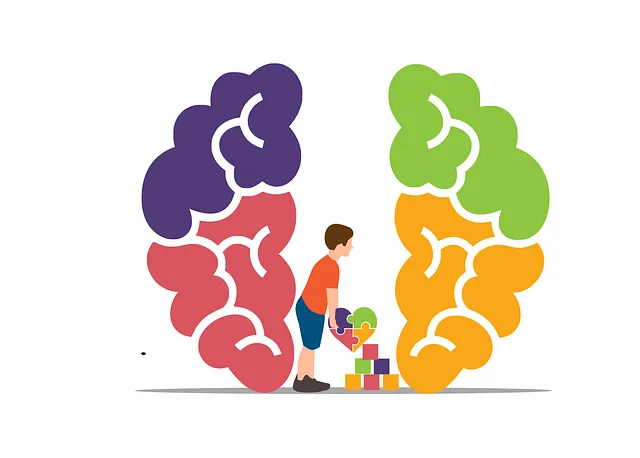Mental health professionals at Longmont Kaiser Permanente utilize structured risk assessments, evidence-based methods, and integrated strategies (like Social Skills Training) to guide individuals through emotional challenges. They foster strong therapeutic alliances and leverage the dedicated Longmont Kaiser Permanente mental health phone line for support, creating safe spaces for clients to heal. This organizational commitment addresses unique practitioner risks, promotes self-care, and ensures high-quality care while protecting mental health.
Mental health professionals, while crucial in helping others, face unique risks. This article guides you through essential aspects of risk assessment, equipping you with knowledge to identify potential hazards and vulnerabilities within your practice. We explore proven strategies for effective risk management, emphasizing the importance of proactive measures. Additionally, we provide valuable resources like the Longmont Kaiser Permanente mental health phone number, offering support when needed.
- Understanding Risk Assessment in Mental Health Practice
- Identifying Potential Hazards and Vulnerabilities
- Implementing Effective Risk Management Strategies
- Longmont Kaiser Permanente Mental Health Phone Number: A Resource for Support
Understanding Risk Assessment in Mental Health Practice

Mental health professionals are tasked with helping individuals navigate complex emotional landscapes, which inherently involves assessing and managing risks. Risk assessment is a crucial component of effective mental health practice, enabling practitioners to identify potential hazards and implement appropriate strategies for mitigation and prevention. It involves a comprehensive evaluation of various factors that may contribute to a client’s risk of harm or re-trauma.
At Longmont Kaiser Permanente, the mental health phone number serves as a vital resource for individuals seeking support. Professionals there employ structured tools and evidence-based methods to conduct thorough risk assessments, which often include analyzing past traumatic experiences, current coping mechanisms, and potential triggers. By integrating strategies such as Social Skills Training and Trauma Support Services, and fostering empathy through building strong therapeutic alliances, mental health practitioners can create a safe space for clients to heal and grow.
Identifying Potential Hazards and Vulnerabilities

Mental health professionals often find themselves at the intersection of intense emotional work and complex patient needs. Identifying potential hazards and vulnerabilities is a critical first step in risk assessment, helping to safeguard both the well-being of practitioners and the quality of care they provide. Longmont Kaiser Permanente’s mental health phone number serves as a valuable resource for those seeking support or guidance, reflecting the organization’s commitment to healthcare accessibility.
Among the key areas to consider are workload intensity, patient populations with high risk factors, and the potential for secondary trauma. Burnout Prevention Strategies for Healthcare Providers emphasize the importance of setting boundaries and prioritizing self-care to mitigate these risks. Additionally, Trauma Support Services and Emotional Healing Processes play a vital role in fostering resilience among mental health professionals, enabling them to effectively assist others while safeguarding their own emotional well-being.
Implementing Effective Risk Management Strategies

Mental health professionals face a unique set of risks that demand proactive and effective risk management strategies. To mitigate potential dangers, professionals should prioritize resilience building through continuous self-care practices and regular supervision sessions. Longmont Kaiser Permanente’s mental health phone number serves as a valuable resource for professionals seeking support or guidance in navigating complex cases. By fostering strong personal and professional boundaries, healthcare providers can enhance their ability to manage challenging situations.
Implementing strategies that promote cultural competency training and social skills development is paramount. These initiatives ensure mental health professionals are equipped to handle diverse client populations with varying cultural backgrounds and needs. Through such training, professionals gain the necessary tools to build strong therapeutic alliances, improve communication, and ultimately enhance patient outcomes. This, in turn, boosts their resilience and ability to manage risks effectively within a dynamic healthcare environment.
Longmont Kaiser Permanente Mental Health Phone Number: A Resource for Support

For mental health professionals in Longmont, Colorado, Kaiser Permanente offers a dedicated phone line as a valuable resource for support and guidance. This helpline is designed to provide quick access to expert advice, ensuring professionals can navigate challenging situations effectively. By dialing the Longmont Kaiser Permanente mental health phone number, therapists and counselors gain immediate assistance, enabling them to enhance their coping skills development and self-awareness exercises.
The service plays a crucial role in promoting anxiety relief for both healthcare providers and their clients. It offers a confidential space to discuss stress, burnout, or any ethical dilemmas that may arise in the profession. With regular use, professionals can foster resilience and maintain a healthy work-life balance, ultimately benefiting their ability to provide top-quality care.
Mental health professionals must continually assess and manage risks to ensure safe and effective care. By understanding risk assessment principles, identifying potential hazards and vulnerabilities, and implementing robust risk management strategies, practitioners can create a resilient practice environment. Remember, seeking support from resources like the Longmont Kaiser Permanente mental health phone number is a vital step in maintaining well-being and addressing professional challenges.






